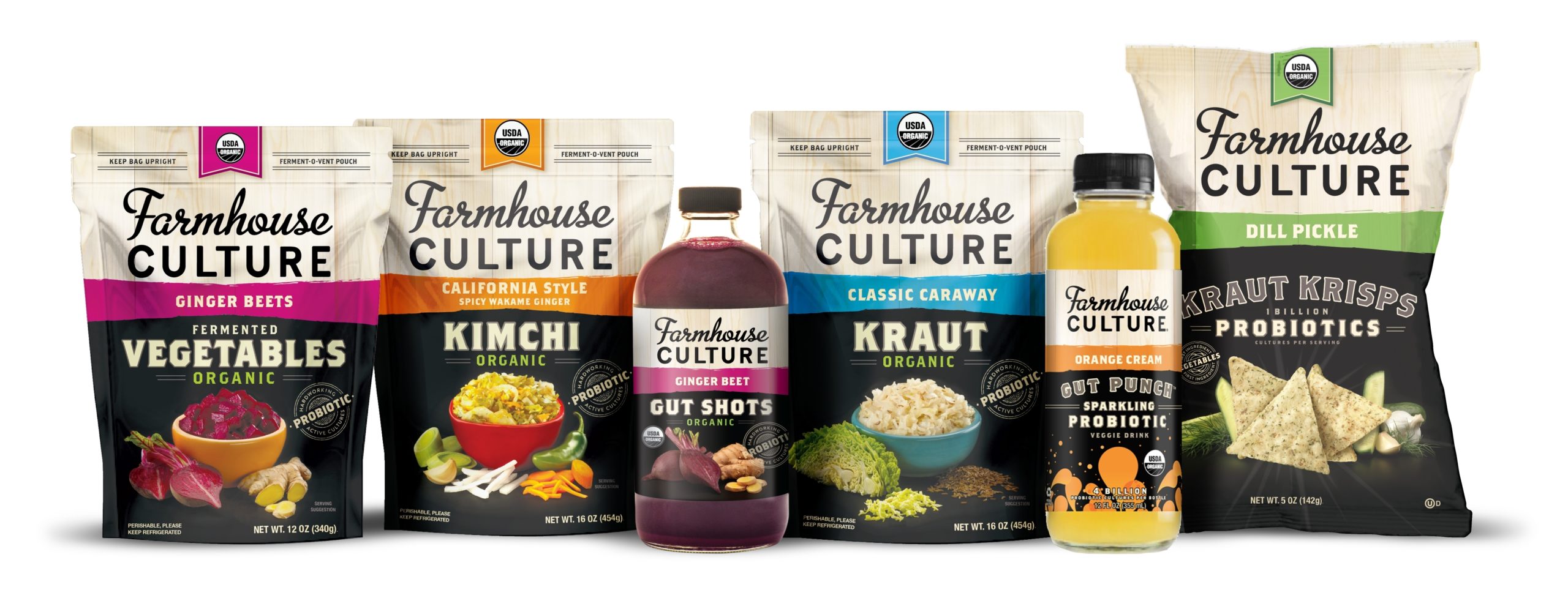
According to a recent article in The Economist, fermentation is on the rise, both in terms of back-to-basics home canning and jarring, as well as manufactured foods. Fermented foods are loaded with probiotics, which makes me wonder: Are fermented foods the next Greek yogurt? From a health and wellness perspective, there seems to be good reason to keep an eye on this space.
As the article states, “The gut bustles with bacteria by the billions which assist with digestion, helping determine health, weight and even mood.” Additional information I’ve researched connects to other benefits such as a reduction in inflammation, which can be tied to a host of ailments including certain cancers.
While Chobani didn’t begin the Greek yogurt trend, they were an early mover and fair to say, were the ones to capitalize on it the most. Who or what will be next? Kombucha? Kimchi? Sauerkraut? (Yes, I’m actually suggesting it could be sauerkraut!)
The tie to gut health and overall health makes a lot of sense. Years ago, CCF worked on what we referred to as “Cow Chow”: Livestock feeds and supplements for Land-O’Lakes and Purina Mills. The education I received working in this industry gave me an understanding of how rumen in the cattle’s stomachs plays a significant role in their overall health and gives them what’s known as “the look” at market (which, of course, commands a better price). It’ an oversimplification, but I think you get the point.
So, what role does gut health play in our overall health and what can marketers and manufacturers do to take advantage of it?
In researching for this post I came across the Slow Food Movement. Started in Italy in 1986, it took roots in the U.S. in 2008. At its height, it had over 30,000 members. Now at 6,000 members and 150 chapters, it continues to promote wellness via slowing down and eating better. Coupled with knowledge found in TIME Magazine’s special edition on Mindfulness, as well as our recent THINK Report on the same topic, it makes sense that groups like the National Culinary Institutes are teaching up-and-coming chefs how to prepare healthier foods and source locally, and I believe the Slow Food Movement and its ideas are worth paying close attention to.
One company tied closely to all of this is Farmhouse Culture. They produce sauerkraut-based products designed to promote better gut health. The product line includes vegetables, chips, and drinks, such as “gut shots,” a liquid designed to be used as a shot or blended into recipes like a salad dressing. I can personally attest to their ginger beat shot helping me reduce inflammation over the past month. Farmhouse Culture has attracted the interest of 301 Inc., the health and wellness investment arm of General Mills, to the tune of a $605 million investment.
In CCF’s backyard, Dr. Heidi Nelson at Mayo Clinic is investigating the link between the microbiome (bacteria in our bodies) and disease prevention. In this video, she discusses the importance of long-term partnerships between researchers and the food industry to create products that contribute to health.
I don’t have the crystal ball to tell you how this will evolve, but I can advise you to pay attention. Growth in kombucha drinks has skyrocketed over the past few years, especially with Millenials and Gen Y. Product lines like Farmhouse Culture’s are positioned very well for growth.
An important component if you’re already in this space is deciding who to target. We don’t think it’s quite ready for the masses, but probably the segment we call the Committeds. They are early adopters who are more likely to pay more for your product and more likely to be brand evangelists.
If you’re interested in learning more about deciding who to target and why for any Conscious Consumer segment, join us for our webinar “Four Steps to Build Loyalty with Conscious Consumers in a Fragmented Market” hosted by AAR Partners on February 7, 2018 from 1-1:30PM EST.



